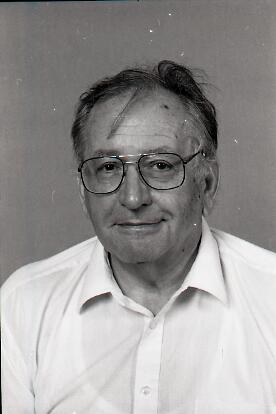
Área de título y declaración de responsabilidad
Título apropiado
H. Bruno Schiefer - Portrait
Tipo general de material
- Graphic material
Título paralelo
Otra información de título
Título declaración de responsabilidad
Título notas
Nivel de descripción
Item
Institución archivística
Código de referencia
Área de edición
Declaración de edición
Declaración de responsabilidad de edición
Área de detalles específicos de la clase de material
Mención de la escala (cartográfica)
Mención de proyección (cartográfica)
Mención de coordenadas (cartográfica)
Mención de la escala (arquitectónica)
Jurisdicción de emisión y denominación (filatélico)
Área de fechas de creación
Fecha(s)
-
1995 (Criação)
Área de descripción física
Descripción física
2 photographs : b&w ; 3.5 x 2.5 cm
2 negatives : b&w ; 3 x 2 cm
Área de series editoriales
Título apropiado de las series del editor
Títulos paralelos de serie editorial
Otra información de título de las series editoriales
Declaración de responsabilidad relativa a las series editoriales
Numeración dentro de la serie editorial
Nota en las series editoriales
Área de descripción del archivo
Nombre del productor
Historial de custodia
Alcance y contenido
Head and shoulders image of Dr. Bruno Schiefer, Western College of Veterinary Medicine.
Bio/Historical Note: Bruno Schiefer was born in Cologne, Germany on 25 August 1929. He never spoke much of his adolescence, which was heavily marked by World War II during which he spent considerable time in rural Westerwald, where the Schiefer family originates and his strong affinity to animals developed. After graduating from high school in 1949, he studied Theology at a Catholic seminary in Bonn. In 1952 Schiefer altered his career direction and entered Veterinary Science. He earned both his Doctorate of Veterinary Medicine in 1956 and the equivalent of a Ph.D. in Veterinary Pathology from the University of Munich. In 1966 Schiefer was invited to spend a year as a visiting professor at the University of Connecticut. In 1969 Schiefer joined a team of scientists to investigate the controversial hunting of Canadian harp seals. As a side trip, he visited Saskatoon while being recruited by the University of Saskatchewan. After returning to Munich the family made the bold decision to leave Germany and immigrate to Canada. In July 1969 the newly built Western College of Veterinary Medicine opened with Schiefer as a founding member of the Department of Veterinary Pathology. After just one year he won the prize for best teaching and within two years, Schiefer became acting head of the department. By 1974, he was appointed department head. After a sabbatical in Switzerland, Schiefer served as chairman of the Toxicology Group in the College of Graduate Studies and Research from 1978 to 1983. He lobbied for the establishment of a Toxicology Research Centre, which was finally created in 1983. In 2007, he fully realized his dream of creating a world-class facility as the culmination of a thirty-year struggle. The success of the Toxicology Research Centre and the development of the Canadian Network of Toxicology Centres were Dr. Schiefer’s greatest accomplishments. In the early 1980s, the Canadian Department of External Affairs, asked Schiefer to examine the alleged use of mycotoxins as chemical warfare agents in Southeast Asia. His report from that study became an official UN document in 1982. He served as President of the Society of Toxicology of Canada from 1983 to 1985. After his tenure he was honoured with the Award of Distinction for “exceptional contribution to his profession and the Society.” Schiefer retired in 1993. He died in July 2020 in Warman, Saskatchewan, at age 90.
Área de notas
Condiciones físicas
Origen del ingreso
Arreglo
Idioma del material
Escritura del material
Ubicación de los originales
Disponibilidad de otros formatos
Restricciones de acceso
Condiciones de uso, reproducción, y publicación
Photographer: DAVS
Copyright holder: University of Saskatchewan
Other terms: Researcher responsible for obtaining permission

